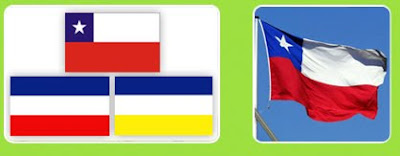World Wetlands Day 2014: Wetlands and Agriculture: Partners for Growth
| World Wetlands Day 2014: Wetlands and Agriculture: Partners for Growth |
|
|
Agriculture: DEPENDENT or POLLUTER of WETLANDS? |
|
|
February 3, 2014.
Agriculture accounts for the major use of all the water that comes from
wetlands and continues to be a major polluter of these wetlands. In an
effort to address this problem, the theme of World Wetlands Day 2014 was
to highlight the relationship between wetlands and agriculture, which
aims to raise awareness about the importance of wetlands, to promote the
wise use of wetlands and to encourage farmers NGOs, civil societies and
other stakeholder groups to manage wetlands in a sustainable way so
that humanity can continue to benefit from it. Since 1971, the Ramsar
Convention has designated February 2 as World Wetlands Day in an effort
to globally recognize the importance of wetlands. Christopher Briggs, the Secretary General of the Convention of Wetlands noted that while agriculture accounts for the major use of all the water that comes from wetlands, the excessive use of pesticides and fertilizers in agriculture cause significant pollution of wetlands. In fact, globally two million tonnes of sewage and agricultural waste from chemicals and pesticides enter the world’s waterways annually, contributing to a 50-90% decline in wetlands and mangroves over the last 40 years. This has been described as a “ nutrient challenge “ which arises from a divide between society’s need for food and energy and the environmental impacts which damage the natural resource base. During the launch of the Global Partnership on Nutrient Management (GPNM), Caribbean Platform in May in Trinidad and Tobago, Anjan Datta, the Senior Programme Officer of UNEP’s Global Programme of Action for the Protection of the Marine Environment from Land- Based Activities (GPA), reported that food security of two-third of the world’s population depends on the availability and use of nutrients in the form of fertilizers, which are essentially nitrogen and phosphorous. The Wider Caribbean Region is no different as its wetlands continue to be threatened by pollution. Protection of wetlands is emphasized through UNEP’s Protocol Concerning Specially Protected Areas and Wildlife (SPAW Protocol). One-third of coral reefs are threatened by untreated sewage, industrial effluent and chemical runoff from agriculture. These nutrients can lead to the collapse of fisheries, eutrophication and shellfish poisoning. This will affect over 200,000 persons who depend on the fisheries as a source of income, compromise the integrity of 285 Marine Protected Areas and threatening the status of the region which is considered one of four biodiversity hot spots in the world with over fifty percent of the species listed as endemic/unique to the region. Fortunately, UNEP’s Secretariat to the Cartagena Convention in association with the UNEP GPA is seeking to address this problem with the launch of the Global Partnership on Nutrient Management Caribbean Platform. This platform will provide a forum for governments, scientists, UN agencies and other stakeholders within the Wider Caribbean Region to come together in developing a common regional response to this problem. Mr. Nelson Andrade Colmenares, Regional Coordinator to UNEP’s Secretariat to the Cartagena Convention commented that the platform was timely as nutrients (chemicals from agricultural based pesticides and fertilizers) from land based sources represent a major source of pollution in the Wider Caribbean Region and it was time stakeholders took action to reduce the negative environmental impacts. Improving agricultural practices and reducing runoff from fertilizers and pesticides actually improves the ecosystem functioning of wetlands which would not only benefit the agricultural sector but all living things. The United Nations Environment Programme (UNEP) Caribbean Environment Programme (CEP) is celebrating forty years as a regional seas programme. Join UNEP CEP in the global recognition of 2014 as the International Year of Small Island Developing States. fuente: pnuma |

Comentarios